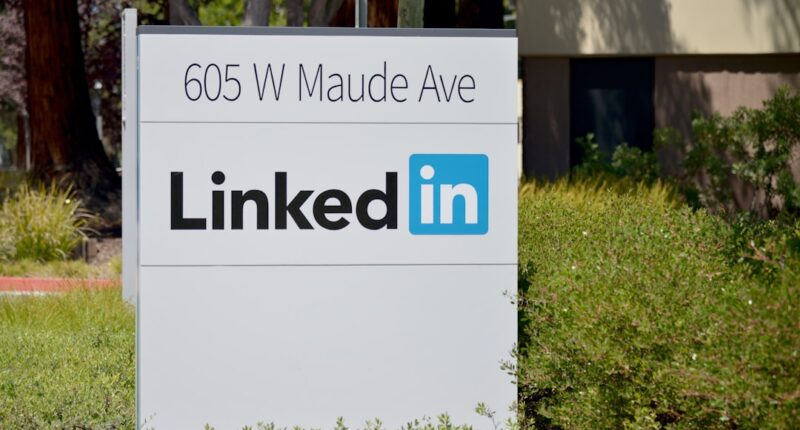In the current digital era, influencer marketing is now a crucial component of the marketing plans of many companies. Although brands have historically preferred to work with celebrities & macro influencers, there has been a shift in favor of using micro influencers. However, what precisely are micro influencers, and why are they crucial to marketing strategies? Micro influencers are people with a smaller but very active social media following. Their influence comes from their authenticity & knowledge in a particular field, and they usually have 1,000–100,000 followers. In contrast to celebrities and macroinfluencers, followers view microinfluencers as more approachable and reliable.
Key Takeaways
- Micro influencers have become increasingly important in today’s marketing landscape.
- Authenticity and niche expertise are key traits of micro influencers.
- Engagement and trustworthiness are important qualities of micro influencers.
- User-generated content (UGC) plays a significant role in micro influencer marketing.
- Building a UGC database and leveraging UGC email campaigns are effective strategies for micro influencer marketing.
Micro influencers are crucial to marketing because of their capacity to engage specialized audiences. Because they have a thorough awareness of the interests and preferences of their followers, they are able to produce extremely targeted content that appeals to their audience. Higher engagement rates and deeper bonds between brands and customers can result from this focused approach. Data and statistics support the efficacy of micro influencers in marketing.
Micro influencers have a four-fold higher chance of receiving a comment on a post compared to macro influencers, per a study conducted by Experticity. Also, according to a Collective Bias survey, thirty percent of buyers are more inclined to purchase a product that a non-celebrity blogger recommends. Their importance in marketing has been further highlighted by a number of highly successful micro-influencer campaigns. Emily Luciano, a micro-influencer, and watch brand Daniel Wellington have partnered to provide one such example.
Sales and brand awareness increased significantly as a result of Luciano’s genuine and organic Instagram posts showcasing the brand’s watches. Also, micro influencers can connect with niche audiences that celebrities and macro influencers might pass over. A micro influencer with expertise in vegan recipes, for instance, can efficiently market a vegan food product to a highly specific group of people who are considering plant-based diets. Brands can interact with customers who are truly interested in their goods or services thanks to this degree of specificity. Authenticity is one of the most important characteristics of micro influencers.
| Micro Influencer Traits and Qualities | Description |
|---|---|
| Authenticity | Micro influencers are known for their genuine and honest content, which resonates with their followers. |
| Niche expertise | Micro influencers have a deep understanding of their niche and are considered experts in their field. |
| Engagement | Micro influencers have a highly engaged audience, with followers who actively interact with their content. |
| Relatability | Micro influencers are relatable to their followers, often sharing personal stories and experiences. |
| Cost-effective | Working with micro influencers is often more cost-effective than partnering with larger influencers or celebrities. |
| Long-term partnerships | Micro influencers are often open to long-term partnerships, which can lead to more authentic and effective collaborations. |
Micro influencers typically choose their partners more carefully than celebrities and macro influencers, who frequently collaborate with several brands. They only work with companies who share their values and interests in order to maintain the authenticity and genuineness of their content. The tale of Sarah, a microinfluencer with a strong interest in sustainable fashion, is an example of a microinfluencer’s genuineness.
Sarah opened her Instagram page to share her passion for sustainable fashion options and to show off her love for eco-friendly clothing brands. Because they are aware that she sincerely believes in the companies she endorses, her followers are willing to heed her advice. Being genuine is essential for influencer marketing because it fosters followers’ trust. Customers look to influencers for frank advice and recommendations as they grow more dubious of conventional advertising techniques.
With their specialized knowledge and sincere enthusiasm, micro influencers are able to build a level of trust that can be challenging to accomplish with celebrities and macro influencers. Micro influencers’ interaction with their followers is another crucial characteristic. Micro-influencers frequently have a closer relationship with their audience than celebrities and macro-influencers, who may have a larger following but less engagement. They make an effort to interact meaningfully with their followers by taking the time to reply to their messages and handle inquiries. The narrative of fitness microinfluencer Alex serves as an example of how microinfluencers can be engaged.
On her Instagram account, Alex frequently shares recipes and workout routines. By answering their comments, offering more advice, and even sharing some of their success stories on her page, she actively interacts with her followers. This degree of involvement develops a devoted following and a feeling of community. Brands greatly value micro influencers’ capacity to increase engagement. Through collaboration with micro influencers, brands can reach their highly engaged audience & establish a feeling of community surrounding their goods or services. Higher conversion rates may result from this, as well as improved word-of-mouth referrals & brand loyalty.
Another characteristic that distinguishes micro influencers is their reliability. As previously stated, followers view micro influencers as more relatable and reliable. By providing regular and genuine content, this trust is gradually developed.
Customers are more inclined to believe a micro influencer’s recommendation and buy a product or service. Micro influencer marketing heavily relies on user-generated content (UGC). Any material produced by customers or brand followers, including reviews, endorsements, images, and videos, is referred to as user-generated content, or UGC. It works well for brands to highlight actual experiences and create social proof.
In marketing, user-generated content (UGC) is crucial because it gives a brand’s messaging more legitimacy and authenticity. Rather than traditional advertising, content produced by peers has a higher chance of being trusted by consumers. 79 percent of respondents to a Stackla survey stated that user-generated content (UGC) has a significant influence on their purchase decisions. Microinfluencers have the potential to be extremely important in producing UGC for brands. It is more probable that their devoted and involved followers will produce content about the company or item they endorse.
The brand can then spread this content, expanding its audience and impact even more. Numerous UGC campaigns involving micro influencers have been successful. For instance, the beauty brand Glossier invites its clients to post pictures of their makeup using the hashtag glossier. Following that, the company highlights some of the greatest user-generated content (UGC) on its social media channels to foster a feeling of community and highlight the diversity of its offerings. There are a few best practices & pointers to consider when developing user-generated content (UGC) campaigns with micro influencers.
The micro influencers must firstly be informed of the campaign’s objectives & standards in a clear & concise manner. This guarantees that they comprehend the kind of content that is preferred and the appropriate methods for sharing it. In addition, companies ought to furnish micro influencers with the essential equipment and materials to generate superior content. Product samples, invitations to private events, and even expert photography services can fall under this category. Through the provision of these resources, brands can guarantee that the content produced by micro influencers conforms to their brand image and standards.
Thirdly, companies ought to support micro influencers in being original and genuine in the content they produce. UGC initiatives shouldn’t come across as forced or unduly promotional. Rather, brands and products should allow micro influencers to present themselves in a way that is authentic and feels right to their audience.
Effective tactics and resources are needed to build a UGC database for microinfluencer marketing. First and foremost, companies ought to have a well-defined procedure for gathering and classifying user-generated content. This can be accomplished by using particular submission forms on the brand’s website, hashtags, and tagging. To make the process of gathering and organizing UGC easier, tools like social media management platforms and UGC platforms can be used.
By using these tools, brands can effortlessly monitor and select user-generated content (UGC), guaranteeing its efficient integration into marketing campaigns. The tale of a fashion brand that established a specific hashtag for customers to share their daily outfits serves as an example of how to successfully create a user-generated content (UGC) database for micro influencer campaigns. The company used these user-generated content (UGC) images of actual customers using their products in social media posts, on their website, and email campaigns. Promoting UGC with micro influencers through email campaigns can be a very effective strategy. A number of dos and don’ts need to be taken into account when developing email campaigns.
First of all, in order to feel more relevant and targeted to the recipient, brands should personalize their emails. This can involve addressing the recipient by name, making reference to their prior interactions with the brand or purchases, & customizing the content to fit their interests. Second, brands must make it obvious to the recipient what the email’s goal is and what action they expect from them. The call to action should be obvious and persuasive, encouraging users to submit their own user-generated content, enter a contest, or offer feedback.
However, companies should refrain from sending impersonal, generic, or spammy emails. Respecting the recipient’s time is crucial, so only send emails that add value or that pique their interest. The tale of a travel agency that emailed clients who had just returned from vacation in a personalized manner serves as an example of how effective using user-generated content (UGC) email campaigns can be. In addition to thanking them for their business, the email urged them to use a particular hashtag when sharing their trip pictures. Subsequently, the user-generated content (UGC) from this campaign was incorporated into subsequent marketing collateral, featuring authentic customer experiences.
Metrics that are specific to micro influencer campaigns involving user-generated content must be used to gauge their effectiveness. First, by keeping an eye on the quantity of likes, comments, shares, and mentions, brands can monitor the reach & engagement of user-generated content. This offers information about the degree of engagement & curiosity created by the user-generated content. Second, companies can examine the UGC-related conversion rates.
Tracking the quantity of clicks, website visits, or purchases that can be directly linked to user-generated content (UGC) is one way to do this. This information aids in assessing how well user-generated content (UGC) motivates consumers to take desired actions. The narrative of a fitness brand that collaborated with multiple micro influencers to advertise their latest exercise regimen serves as an example of how UGC metrics can be utilized to assess the effectiveness of a micro influencer campaign. With the help of the micro influencers’ user-generated content (UGC), the brand was able to measure engagement and conversion rates, calculate campaign ROI, & make data-driven decisions for their next marketing campaigns. Micro influencer and user-generated content (UGC) strategies appear to have a bright future.
Micro influencers will be essential in helping brands engage with their target audience as consumers continue to seek out relatable & authentic content. Their knowledge of a particular niche & devoted fan base enable them to run highly effective and focused marketing campaigns. UGC will be a useful resource for brands in the future.
UGC offers a means of showcasing real-life experiences and establishing trust with potential customers in an era where consumers are growing increasingly wary of traditional advertising. Through the utilization of user-generated content (UGC) and the impact of micro influencers, brands can establish significant bonds and produce measurable outcomes. An example of a successful use of UGC & micro influencer marketing in the future by a skincare brand to reach a target market is the following anecdote. Through collaboration with micro influencers who were passionate about clean beauty, the brand produced genuine user-generated content (UGC) that connected with their intended audience.
Following its use in different marketing campaigns, this user-generated content (UGC) raised sales and brand recognition. In conclusion, UGC & micro influencers are effective tools in the modern marketing arsenal. Their capacity to establish rapport with specialized audiences, foster credibility, and stimulate interaction renders them indispensable resources for brands. Through comprehension of micro influencers, utilization of user-generated content (UGC), and application of efficacious tactics and resources, marketers can craft persuasive advertising campaigns that strike a chord with their intended demographic.
If you’re curious about what makes a micro influencer and how they can impact your brand, you’ll definitely want to check out this insightful article on the topic. It delves into the key characteristics and strategies that set micro influencers apart from their larger counterparts. Discover why their authentic connections with niche audiences can be a game-changer for your marketing efforts. To learn more, click here.
FAQs
What is a micro influencer?
A micro influencer is an individual who has a small but highly engaged social media following, typically between 1,000 and 100,000 followers.
What makes someone a micro influencer?
Several factors contribute to someone being considered a micro influencer, including their niche expertise, engagement rate, and authenticity.
What is a niche expertise?
A niche expertise is a specific area of knowledge or interest that a micro influencer focuses on, such as beauty, fitness, or travel.
What is an engagement rate?
An engagement rate is the percentage of a micro influencer’s followers who actively engage with their content, such as liking, commenting, or sharing.
Why is authenticity important for micro influencers?
Authenticity is important for micro influencers because their followers value genuine recommendations and opinions. Micro influencers who are transparent and honest about their experiences and opinions are more likely to build trust with their audience.
What are some benefits of working with micro influencers?
Working with micro influencers can be beneficial for brands because they often have highly engaged and loyal followers who trust their recommendations. Additionally, micro influencers are typically more affordable than larger influencers or celebrities.





